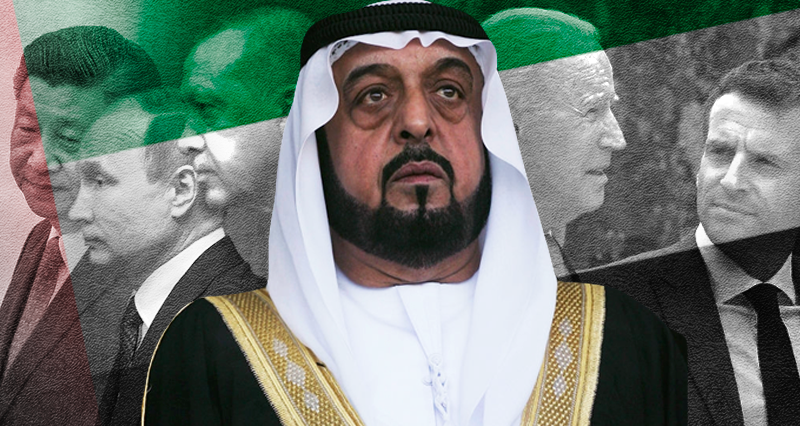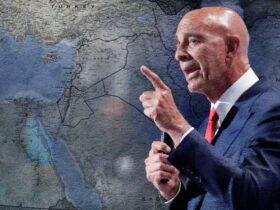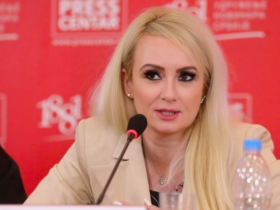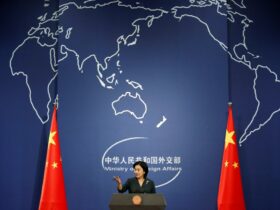UAE-US: A crisis of mutual weakness
On December 14, the United Arab Emirates suspended negotiations on a $23 billion deal to buy U.S. F-35 aircraft, combat drones and other military equipment.
The proposal to sell 50 F-35 aircraft to the UAE came at the end of former President Donald Trump’s administration in response to the Emirates’ official recognition of Israel. President Joe Biden’s administration, for its part, postponed the deal, in part because of criticism of Saudi and UAE actions in Yemen. Emirati officials accuse the Americans of pushing for restrictions on how and where the F-35s can be used. Such demands de facto violate UAE sovereignty.
The dispute over the F-35 demonstrates, on the one hand, that the UAE seeks to be increasingly sovereign vis-à-vis the United States. A key factor here is a general sense of the global decline of the United States. The U.S. can no longer dictate its will to the whole world, is reducing its military presence in the Middle East, and is demonstrating an inability to pursue a flexible policy that takes into account the interests of allies. All this makes an alliance with the U.S. unprofitable for the UAE.
However, this is only part of the problem. Another part is the weakening of the UAE itself. Because of its own foreign policy failures and understanding of the unreliability of reliance on the U.S., the UAE is forced to quickly restructure alliances: to more actively approach China and Russia, to recognize Bashar Assad’s government in Syria and even to go for an unprecedented rapprochement with Turkey, although recently Turkey and the UAE were geopolitical opponents. Here it is very simple – Turkey has pursued a pragmatic and highly successful policy. The UAE tried to oppose Turkey, but was defeated in this field. That is why Abu Dhabi is forced to cooperate and move from harsh confrontation to negotiations.
But the same defeats that brought Abu Dhabi Crown Prince Mohammed bin Zayed to Turkey in November were clear to the U.S. as well. So they decided that they could pressure the UAE.
It is telling that the U.S. is being quite arrogant towards the UAE. So, the negotiations on the F-35 are ongoing. The U.S. makes it clear that it is not going to change the terms of sale of the planes.
Turkey, in a similar situation, has found the strength not to succumb to U.S. pressure. The United States demanded that Turkey give up its purchases of Russian S-400 air defense systems. Ankara did not do this and demonstrated its sovereignty. The UAE could not do the same and now will have to pay for its weakness.
In early December, Anwar Gargash, a diplomatic adviser to the U.A.E.’s leadership told the Arab Gulf States Institute in Washington that the United Arab Emirates had recently ordered a halt to work on a Chinese facility in the country after U.S. officials said that Beijing intended to use the facility for military purposes.
This gesture, of course, hurt the UAE’s relationship with China, and the Americans realized that they could pressure the UAE to get concessions.
UAE: failures on all fronts
This year has been demonstrating that the UAE’s shortsighted and blatantly dangerous policy of achieving regional hegemony in the Middle East and North Africa has collapsed. It is this collapse that has caused the UAE’s geopolitical line to change, but not as fast as it really needs to.
The United Arab Emirates has faced massive difficulties on all fronts. The war in Yemen has been going on since 2015. For the past two years, Saudi Arabia has borne the brunt of the war, but the UAE remains formally a member of the same coalition as Saudi Arabia. The recent strategic successes of the Houthi movement have called into question all of the coalition’s achievements. In fact, Saudi Arabia and the UAE have been defeated in the war.
Badly concealed contradictions between the UAE and Saudi Arabia further undermine the Saudi coalition in Yemen. Against this background, the UAE is forced to seek reconciliation with Iran, the main ally of the Houthis. On December 6, Sheikh Tahnoon bin Zayed Al Nahyan, National security advisor of the United Arab Emirates visited Iran and met with Ali Shamkhani, the representative of the Supreme Leader of Iran and the Secretary of the Supreme National Security Council.
Things are bad for the UAE in Libya as well. In 2019, renegade general Khalifa Haftar tried an offensive on Tripoli. The general was supported by the UAE with finance and weapons. However, Haftar’s offensive failed due to Turkish intervention. Tripoli is now ruled by an interim government (Government of National Unity) headed by interim prime minister, Abdul Hamid Dbeibah, who is friendly to Turkey.
However, despite attempts to normalize relations with Turkey, the UAE continues to support mercenaries from Chad and Sudan in that country. This indicates that Abu Dhabi intends to continue its failed policy in Libya. And this is fraught with a new power crisis.
The situation in Ethiopia is also difficult, where the UAE supports the central government in the fight against the separatists of the Tigray People’s Liberation Front (TPLF). However, the situation on the fronts is changing. Reports that the UAE was supporting Addis Abedah with its drones came as early as a year ago at the beginning of the conflict. At that time, however, the central government of Ethiopia was suffering defeats. Only after increasing cooperation with Turkey by the end of this year were there reports from Ethiopia of serious victories for government forces.
The UAE could use the conflict in Ethiopia to increase its influence in the Horn of Africa. However, in the end it will have to put up with Turkey’s influence in the region, which has once again demonstrated that it acts more effectively, whether it is on one side of the conflict with the Emirates or on the other.
Against the background of frankly unsuccessful policy, the UAE is trying to reformat its foreign policy, but it is doing this also so very unsuccessfully. On the one hand, it is trying to behave more and more independently; on the other, it cannot break with the collapsing hegemon, the United States. Instead of siding with China, the UAE is trying to maneuver between Beijing and Washington, but could end up ruining relations with both. The world situation requires certainty.
Risky diplomacy
The UAE’s attempts to intensify its alliance with France are extremely untimely. In early December, French President Emmanuel Macron visited the UAE. France announced multi-billion dollar deals to sell fighter jets and attack helicopters to the United Arab Emirates. The UAE will buy 80 upgraded Rafale warplanes in a deal worth 16 billion euros ($18 billion) – according to the French Defense Ministry the largest French arms export contract in history.
It is undoubtedly a lucrative agreement for Paris. However, for Abu Dhabi, the alliance with France means dependence on Paris’ aggressive policy in the Mediterranean. France intends to use the UAE to reassert itself in the region.
Such a configuration would be detrimental to the rapprochement between the UAE and Turkey.
An excessively multi-vector policy could simply tear the UAE apart, whose state apparatus might not be able to cope with the complexity of the nation’s challenges.
There is also no way the UAE can end its military adventures in Yemen and Libya. Their positive contribution to the war in Ethiopia is questionable. All this shows the UAE’s shortsighted policy. If the UAE continues to play such games, it will soon collapse, and the war they maintain with its neighbors will return to its borders and cities.
Flip-flopping in foreign policy also reflects the loose internal structure of the UAE itself, where much depends on the compromise position of the Emirates, each of which is a separate hereditary monarchy. Thus, there is evidence that attempts at reconciliation with Turkey and a greater emphasis on economic cooperation, as opposed to failed military interventionism, were the result of pressure from the Emirate of Dubai on Abu Dhabi.
However, attempts to partially maintain an interventionist course could lead to renewed discontent with the capital’s policies on the part of Dubai and other emirates.
Neither Turkey, nor Iran, nor other regional players are interested in problems in the UAE. The crisis in this country, an important power player and economic center, is dangerous for all of West Asia. The countries of the region as a whole are interested in cooperation. However, for such cooperation to be stable, Abu Dhabi must act more radically to break away from Western powers and abandon its former imperialist policies.

















Leave a Reply